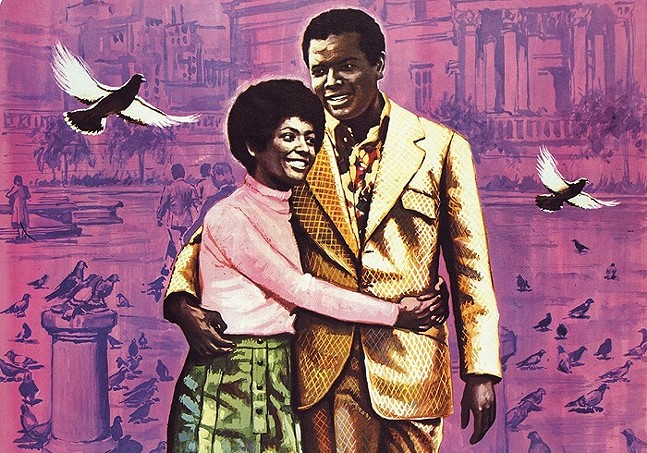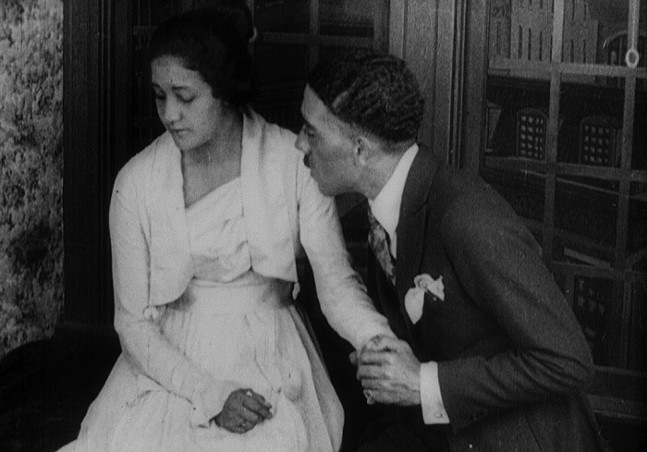Hollywood has, in recent years, grappled with making the entertainment industry more equitable both in front of and behind the camera. This reckoning now extends to Pittsburgh, as questions arise over who will benefit from the city attracting more and more film and television projects.
This is one of many topics covered during the Black Bottom Film Festival, a multi-day event for cinephiles and industry professionals to explore the past, present, and future of Black creative voices. The chosen films are, according to a press release, also meant to align with themes presented in the works of the Center’s late playwright namesake, delving into “spirituality, race, familial strife, honor, duty, and the relentless struggles of the working class.”
The festival, which is sponsored by Citizens Financial Group, kicks off on Fri, Oct. 27 with “Reel Money: Building Pittsburgh’s Film Economy,” a free panel discussion at the August Wilson African American Cultural Center. Moderated by Dawn M. Keezer, executive director of the Pittsburgh Film Office, the event will address how Pittsburgh can compete with other “thriving film and television economies” in Los Angeles, New York City, and Atlanta. The discussion will also examine how to “amplify Black voices, inspire change, and build bridges within Pittsburgh’s burgeoning film community.”
The panel marks a new addition to an annual event that, for the last six years, has highlighted Black contributions to American film culture. The festival continues that mission through its collaboration with the Micheaux Film Festival, an international showcase inspired by the legacy of prolific Black silent-era filmmaker Oscar Micheaux.
“When we started embarking on a film festival program six years ago, we knew there was endless potential to give artists a voice to share perspectives on the challenges and triumphs of Black life around the globe through film,” said August Wilson Center president Janis Burley. “This year, we start with the origins of Black people in front of and behind the camera with Oscar Micheaux to the future with graduate students at Howard University Film School.”
She adds that the festival will look at “Black people in front of and behind the camera” beginning with Micheaux, whose 1920 film Within Our Gates will be screened and then discussed during a talkback and panel with Jacqueline Stewart, president of Turner Classic Movies and Academy Museum of Motion Pictures. Stewart will also be presented with the Black Bottom Film Festival Luminary Award for her work as a preservationist and educator focused on Black film.
Within Our Gates serves to capture many of the horrors Black Americans faced in the early 20th century, with depictions of labor exploitation and lynchings. Some film scholars even position Within Our Gates as a response to the pro-Ku Klux Klan, violently racist narrative in D.W. Griffith’s 1915 film The Birth of a Nation.
Also screening is A Warm December, a 1973 romantic drama directed by and starring Sidney Poitier, and the 1978 big-screen adaptation of the hit Broadway musical The Wiz. (It’s a fateful coincidence that a traveling production of The Wiz will stage at the Benedum Center not long after the festival ends.)
One of the festival’s more urgent films, The Ebony Canal: Discussing the Disparities Plaguing Black Births, addresses Black infant mortality rates in the United States, an issue that, in recent years, has received increased attention from public health institutions like the Centers for Disease Control and Prevention. The screening will include a discussion with the film’s director Emmai Alaquiva, a local artist who previously focused on Black mothers with his 2022 exhibition OPTICVOICES: Mama’s Boys.
The festival will also include workshops, talks, and screenings of Micheaux Film Festival submissions, as well as a showcase of works by Howard University alum and graduate students.
For the first time in its history, Black Bottom added an awards component and announced nominees in the categories of Best Narrative Short, Best Documentary Short, Best Documentary Short (Special Programming), and Best Documentary Feature. The nominated films will screen during the festival and winners will be announced during an award presentation on Sunday.
A press release states that the awards serve to “celebrate exceptional contributions in both narrative and documentary films, showcasing the diversity and excellence within the industry” and reinforce Black Bottom’s mission of being “a dynamic platform for filmmakers, emphasizing the richness of Black cinema and storytelling.”
Micheaux Film Festival co-founders Courtney L. Branch and Noel Braham curated Black Bottom, and believe that combining their efforts with that of the Center serves “as a true testament to resilience, pride, and the embodiment of [Black] cinematic excellence.”
“We take immense pride in curating the [sixth] edition of the Black Bottom Film Festival, while also celebrating our partnership. It is both an honor and a privilege to collaborate with the brilliant minds at the Center, led by the visionary leadership of Janis Burley,” said Branch and Braham in a joint statement.
Black Bottom Film Festival. Fri., Oct. 27-Sun., Oct. 29. August Wilson African American Cultural Center. 980 Liberty Ave., Downtown. $20-85, limited free tickets available upon request. awaacc.org

